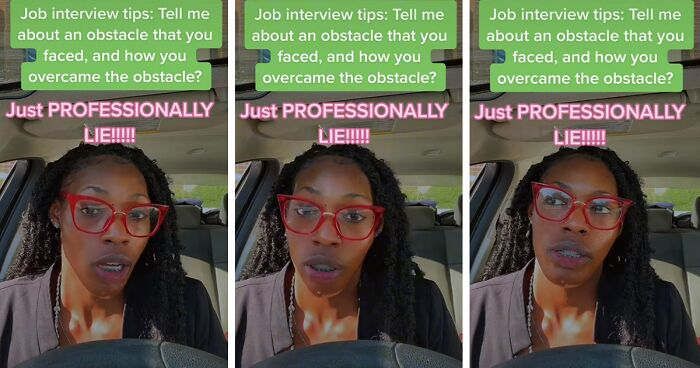
“Tell Me About An Obstacle That You Faced”: Life Coach Tells Job Seekers To “Professionally Lie” During Job Interviews
Job interviews can be nerve-wracking. When the entire goal is to make yourself seem like a desirable candidate, you rehearse your answers and do your due diligence to take the edge off and to avoid surprises that might hurt your chances. You want to ensure you sound professional, so you cherry-pick your experiences to highlight your best side. And let’s face it, when you’re desperate to get the offer, you’re almost encouraged to twist the truth.
Of course, tweaking your resume and lying during the process to deceive your potential employer is usually frowned upon. But according to life coach and content creator Tashe’ Gray, it may be one of the smartest moves job seekers can make. Especially when answering one popular question that often comes up during the conversation.
In her video, which has attracted more than 1.3 million views, Grey shares rather unorthodox advice on how to seem fitter for the role at hand that immediately ignited a discussion on the platform. Scroll down to hear her reasoning, as well as the mixed reactions it received from viewers. Then be sure to share your thoughts and your own personal experiences in the comments below.
Life coach and content creator Tashe’ Gray has recently gone viral for advising job seekers to “professionally lie” when asked this question
Image credits: tashe_gray
Image credits: tashe_gray
You can watch the full video, which amassed over 1.3 million views, right here
@tashe_gray#corporate#lies#jobtips#jobinterviewtips#employee#baddie#MessFreeHero#GenshinTeleport#foryoupage#fyp#fypシ#viral♬ original sound – Tashe’ Gray
After watching the video, viewers sparked a heated discussion on the platform. Some people shared surprisingly positive reactions to Gray’s advice and admitted they often lie during job interviews themselves. However, some TikTokers pointed out that falsehoods tend to bubble to the surface, so it’s best to stay authentic and honest as it goes a long way.
Interestingly, a 2020 survey by Checkster, a reference checking company, found that 78% of candidates who applied for or received a job offer in the last six months admitted they did or would consider lying. Moreover, many hiring managers (66%) are willing to accept these lapses in ethics — or simply don’t care.
This survey of 400 applicants and 400 hiring managers, HR professionals, and recruiters also revealed some of the most common lies potential employees told during the process: having a mastery of skills they barely use (60%), working at a company longer than they did (50%), having a higher GPA by more than half a point (49%), and holding a director title when the actual role was a manager or another equivalent level (41%).
Yves Lermusi, CEO of Checkster, told CNBC Make It that it’s hardly surprising that candidates are prone to lying about their skills or previous dates of employment. “Exaggerating your skills may be seen as an easy thing to get away with in the interview process, as it’s difficult to check unless there is a skills test in the process,” Lermusi said. “In addition, candidates may assume that prospective employers won’t check with their previous employer to confirm details about their past work experience.”
To gain more insight into why people stretch the truth to land a job from an expert, we reached out to Sunny Patel, a UK-based career-change coach aiming to help professionals find careers that excite them. According to him, the advice Gray offered her followers is now quite frequent.
“Whether it comes from a person in a job where they advise job-seekers, or whether a friend giving informal advice, suggesting we should lie is common,” Patel told Bored Panda. “This is partly because we get to go in and play a role within a job interview, so it’s easy to get attracted to the fact that a lie will almost certainly go undetected. For me, however, I think the bigger reason is that we get conditioned throughout our lives to feel that we must have an answer for everything.”
While many applicants believe exaggerating the truth will give them better chances of getting an offer, the career coach warned it can also damage their careers. “Firstly, the issue with telling a lie is that you have to remember the lie,” Patel said. “Failing to do this can cause it to unravel down the line. Another issue is that your interviewer might well see through the lie. If that happens, your credibility is in tatters.”
In a follow-up clip, Gray provided a few examples — both real and completely made up — of how to respond to the question
Image credits: tashe_gray
Image credits: tashe_gray
Image credits: tashe_gray
@tashe_gray Replying to @Juliana Cheriza ♬ original sound – Tashe’ Gray
Apparently, falsehoods can also lead to bigger risks that not enough people talk about. “Many of us feel that we have to have an answer for everything. Some of the most successful people on Earth are happy to own the fact that they don’t know everything, but have the ability to find things out.”
“A knock-on effect of this mentality is that you quickly start to paint a picture of someone with ready-made experience for every aspect of the job. This now increases the pressure for you to hit the ground running,” Patel continued. “Worse still, we all experience imposter syndrome, but why increase this for yourself by landing a job with a lie?”
To understand how to better handle these situations, coach Patel shared a few examples from his personal experience. “I’ve had experiences in interviews where I was asked to give an example of something I’d not done. I have also been the interviewer when my interviewee finds themselves in this situation.”
“My advice is also something I have seen and done. Own the fact, show self-awareness and then demonstrate what your thinking would be in such a scenario. E.g. ‘I don’t have specific experience of doing X, but what I would do in that scenario is…'”
“We forget that what they’re really looking for is how we would tackle the problem, so doing this benefits both parties more than a made-up example,” Patel concluded.
We’d love to hear what you think about the matter. Have you ever fibbed or dodged the truth during a job interview? Do you think it’s appropriate to do so when you want to look your best? Or do you believe that a lie is a lie no matter what? Feel free to share your thoughts with us in the comments.
Bored Panda reached out to Gray and will update the article as soon as we get a comment.
The woman’s reasoning sparked a debate on the platform, with some viewers agreeing with Gray and chiming in with their own experiences
And others said it’s best to stay honest as falsehoods can come back to bite employees in the back
8Kviews
Share on FacebookHR person here - her examples are mostly terrible. If you're ever asked a question about obstacles, successes, failures, we don't want to hear that you lost a race at age 10 but trained to run faster. We want EMPLOYMENT-based answers. If she, a "career coach" gave the obesity answer in an interview I was part of, depending on if she'd already tanked the interview or not, I'd ask her to answer again with an example from her job. And why would we focus on employment only? Because we're an employer, want to know the person can problem solve on the job, and want to stay away from problematic areas like "I was protesting outside the Planned Parenthood..." (later- I didn't get the job? must be religious discrimination). Also, and to the larger point here, we could (though usually don't) check up on the story with the current employer. In 99% of job interview questions, provide examples from your job or job adjacent activities (trainings, conferences, volunteering, etc).
But I think it speaks to a bigger issue of these inane questions being asked where people feel like they HAVE to lie because they don't have real examples. I've done a lot of hiring so I get wanting to know how they would face challenges at your workplace, but most people go to work and go home- they don't face the exciting challenges that a HR rep is looking to hear about. The biggest challenges they face are with management which you can't really talk about at an interview. So ask valid questions like "how do you feel about working this shift?" "How do you work in groups and tell me about how you've done that in the past" or "Why are you leaving your current job and what do you hope to be different here?"...these are valid questions to field a prospective new hire that are based entirely on the job they are applying for, and will still give you an idea of who they are without it being some story you need to hear about how they overcame some major challenge.
Load More Replies...I get were she's going with her first example but talking about weight is a mine field. I think it's one of those topics along with race, religion and politics that you really should avoid talking about until you know someone very well. Even a comment about your own weight said with innocent intentions could trigger someone and they may think you're being passive aggressive. HR is not an exact science but you probably should avoid controversial topics.
HR person here - her examples are mostly terrible. If you're ever asked a question about obstacles, successes, failures, we don't want to hear that you lost a race at age 10 but trained to run faster. We want EMPLOYMENT-based answers. If she, a "career coach" gave the obesity answer in an interview I was part of, depending on if she'd already tanked the interview or not, I'd ask her to answer again with an example from her job. And why would we focus on employment only? Because we're an employer, want to know the person can problem solve on the job, and want to stay away from problematic areas like "I was protesting outside the Planned Parenthood..." (later- I didn't get the job? must be religious discrimination). Also, and to the larger point here, we could (though usually don't) check up on the story with the current employer. In 99% of job interview questions, provide examples from your job or job adjacent activities (trainings, conferences, volunteering, etc).
But I think it speaks to a bigger issue of these inane questions being asked where people feel like they HAVE to lie because they don't have real examples. I've done a lot of hiring so I get wanting to know how they would face challenges at your workplace, but most people go to work and go home- they don't face the exciting challenges that a HR rep is looking to hear about. The biggest challenges they face are with management which you can't really talk about at an interview. So ask valid questions like "how do you feel about working this shift?" "How do you work in groups and tell me about how you've done that in the past" or "Why are you leaving your current job and what do you hope to be different here?"...these are valid questions to field a prospective new hire that are based entirely on the job they are applying for, and will still give you an idea of who they are without it being some story you need to hear about how they overcame some major challenge.
Load More Replies...I get were she's going with her first example but talking about weight is a mine field. I think it's one of those topics along with race, religion and politics that you really should avoid talking about until you know someone very well. Even a comment about your own weight said with innocent intentions could trigger someone and they may think you're being passive aggressive. HR is not an exact science but you probably should avoid controversial topics.

 Dark Mode
Dark Mode 

 No fees, cancel anytime
No fees, cancel anytime 


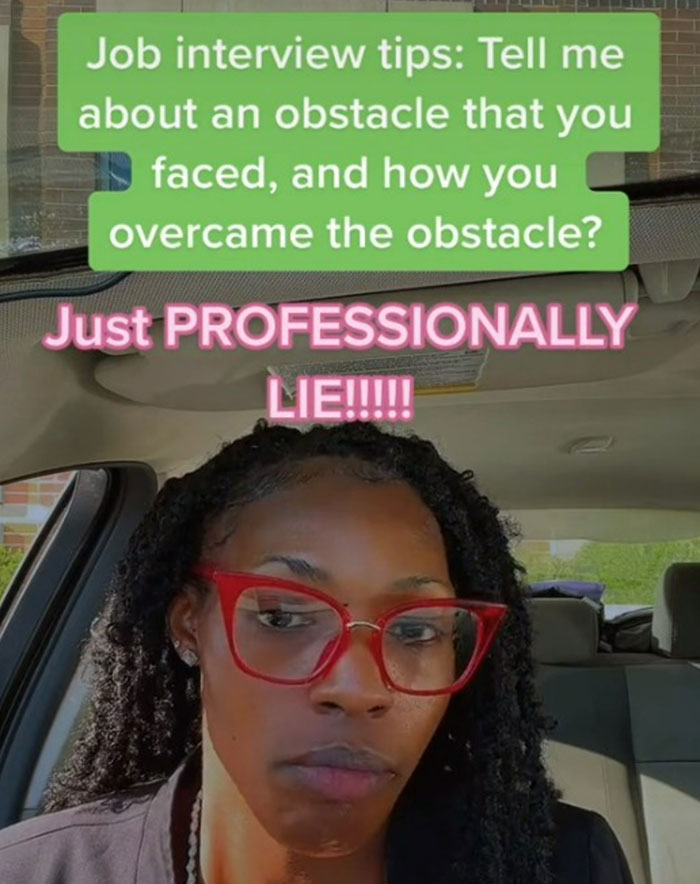
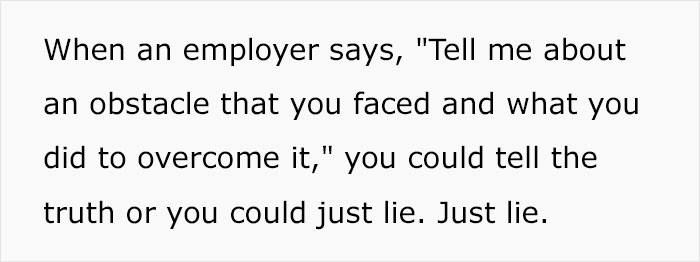
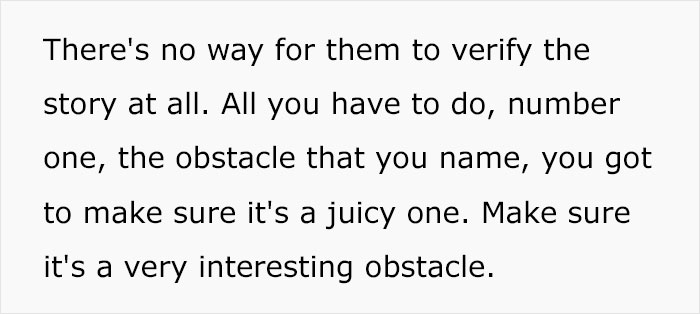
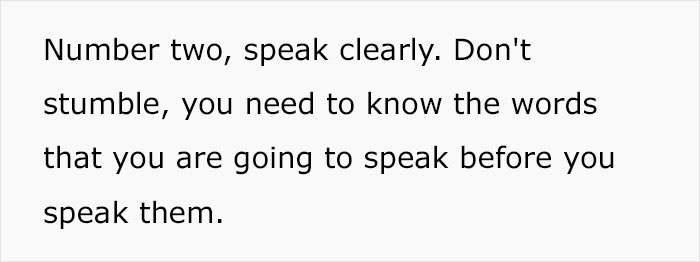
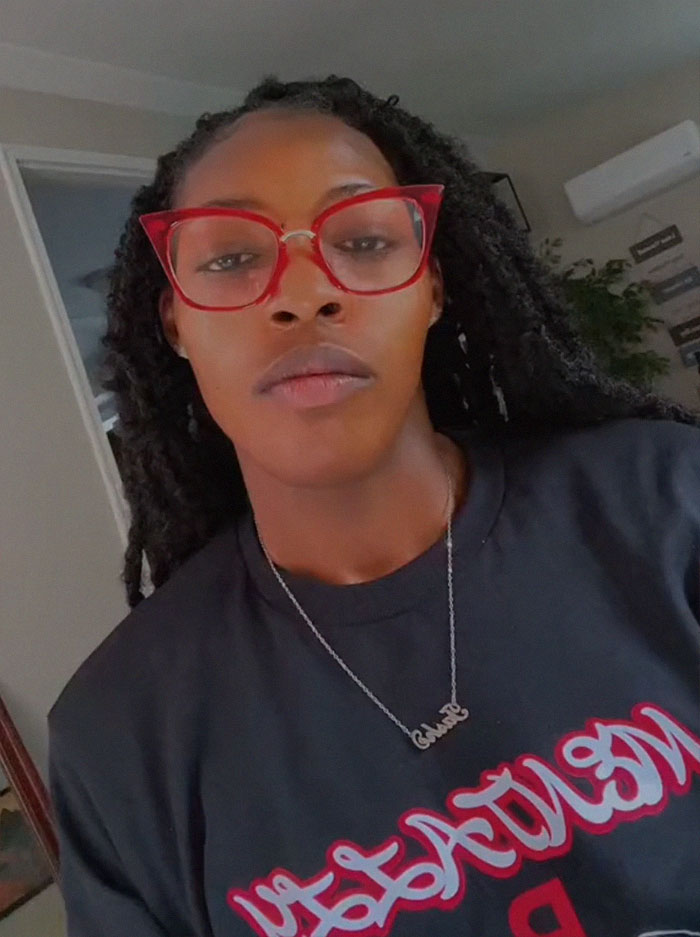
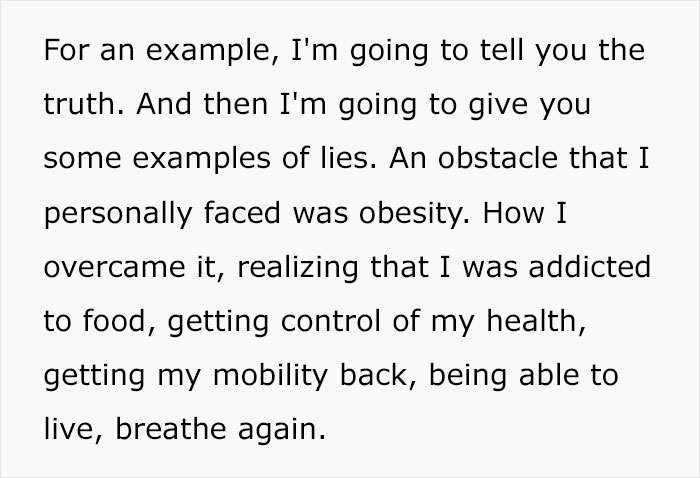
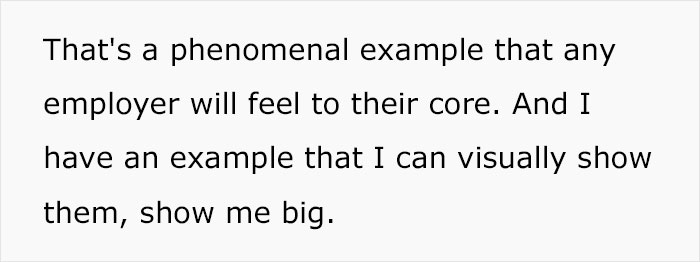
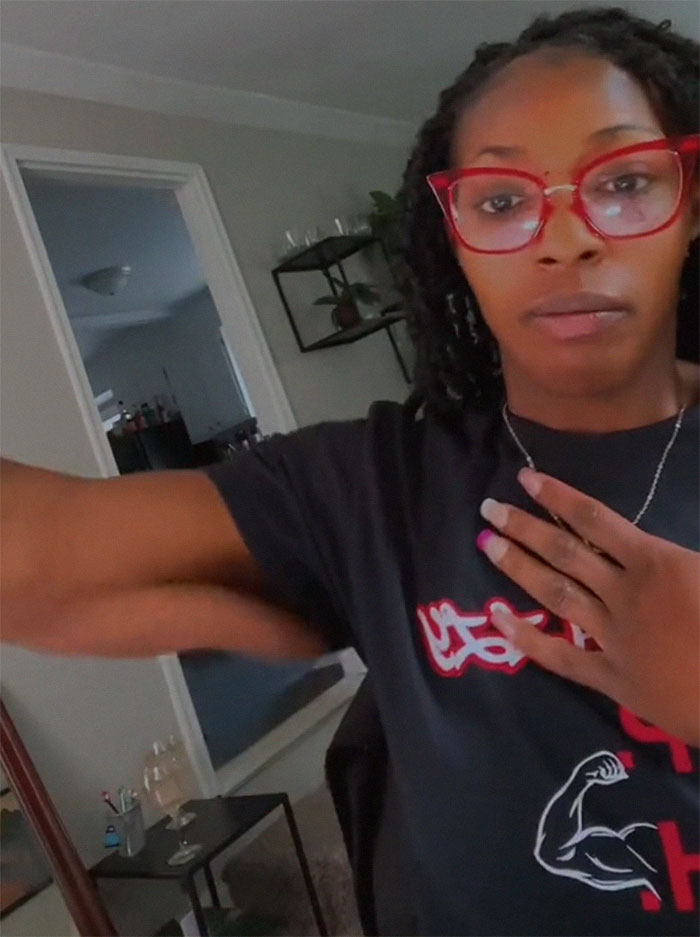
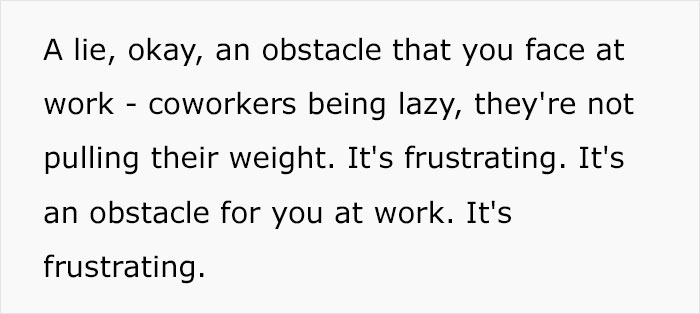
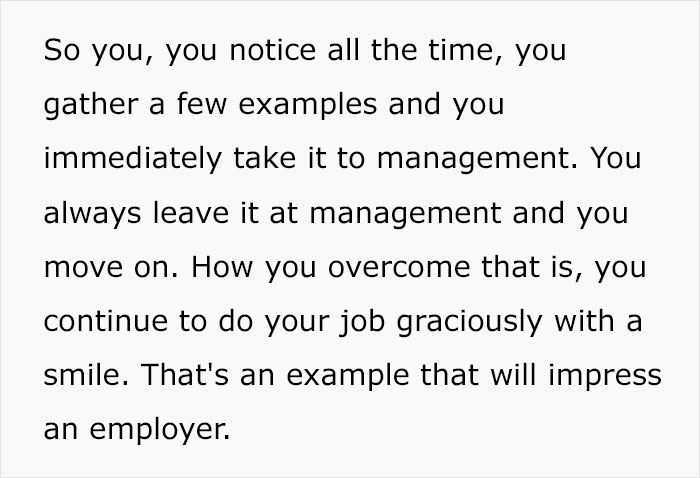
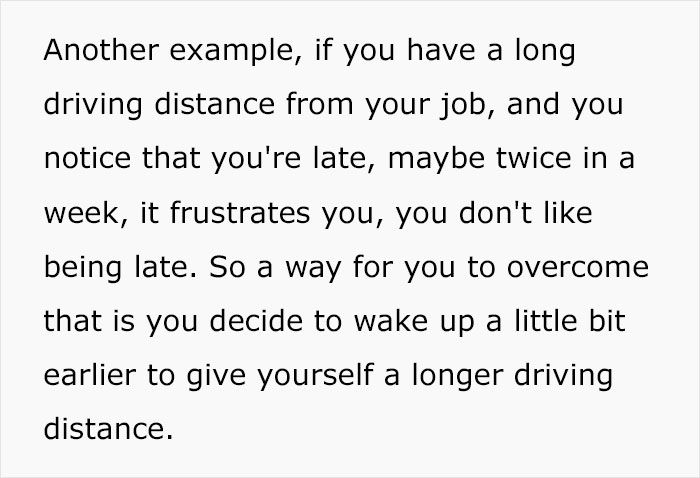
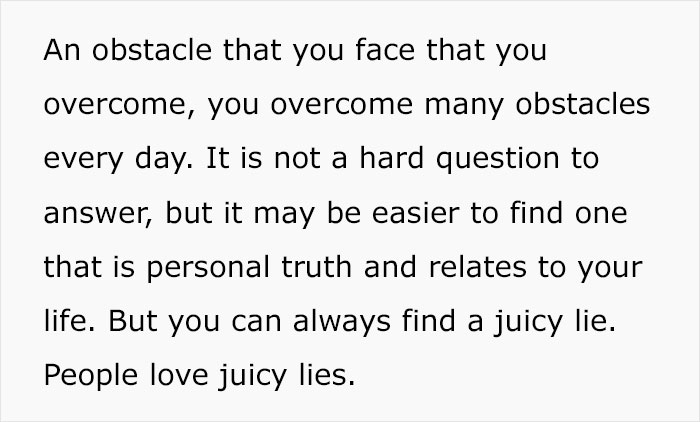
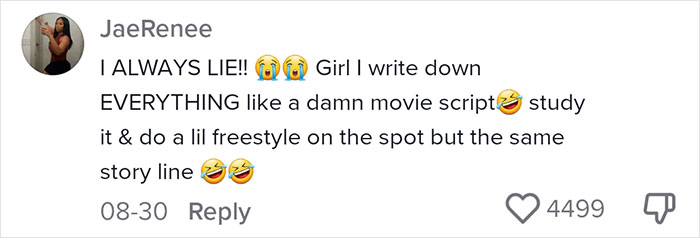







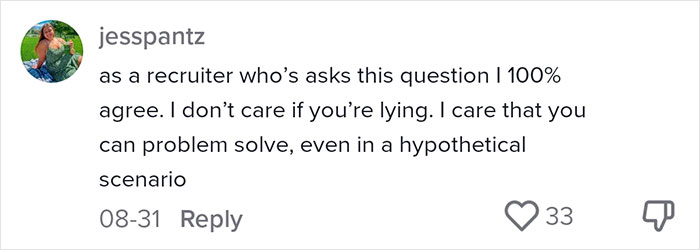
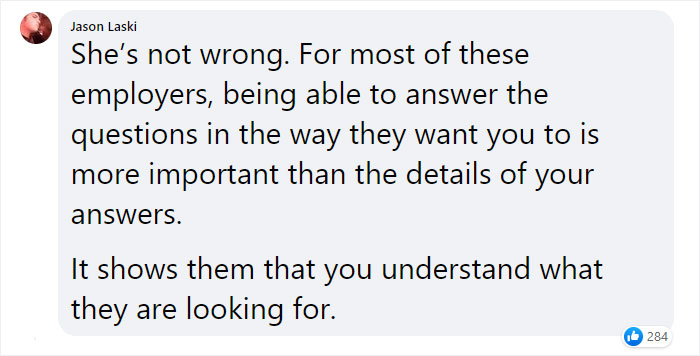
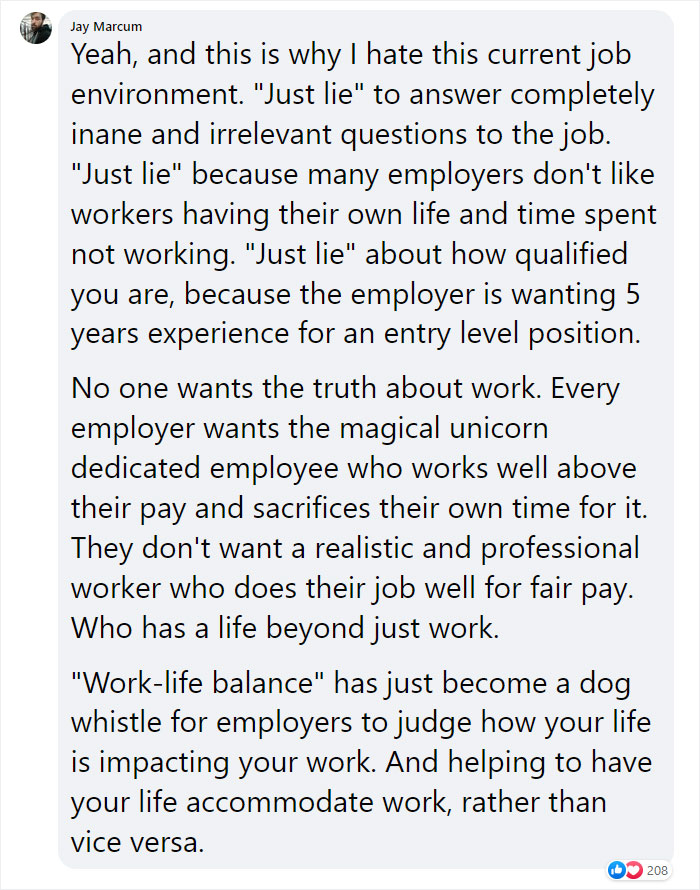



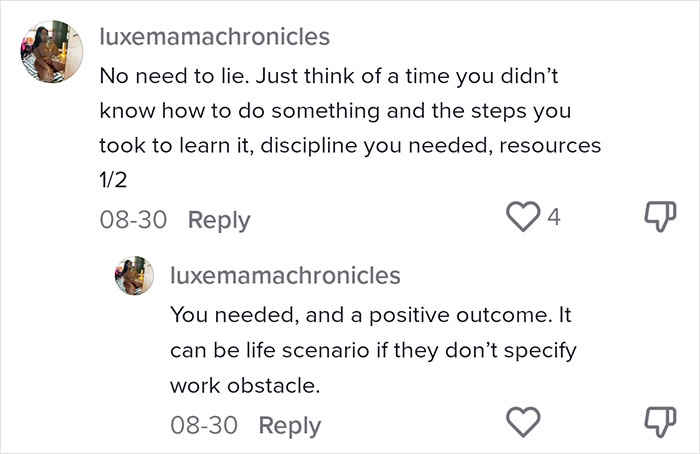

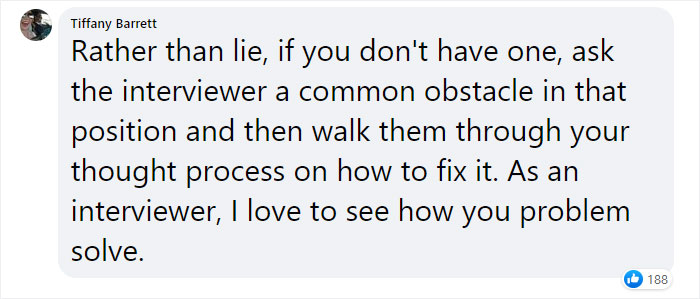
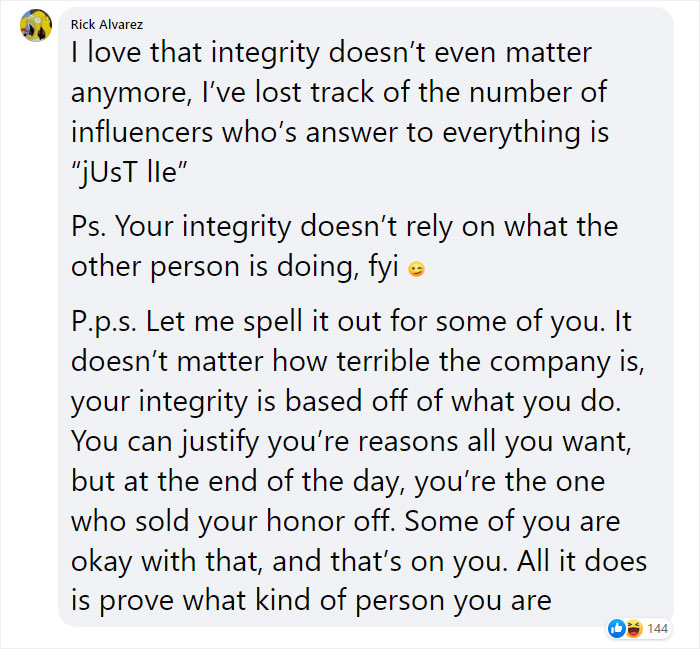
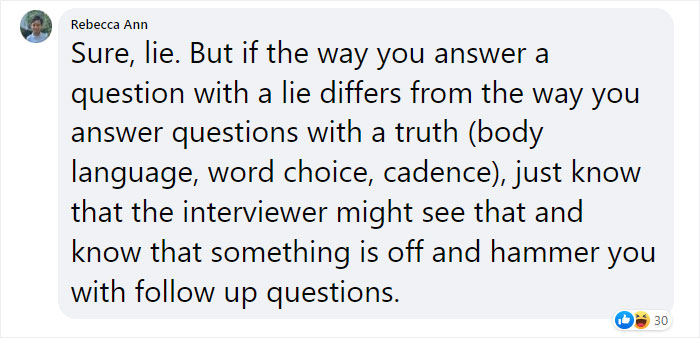









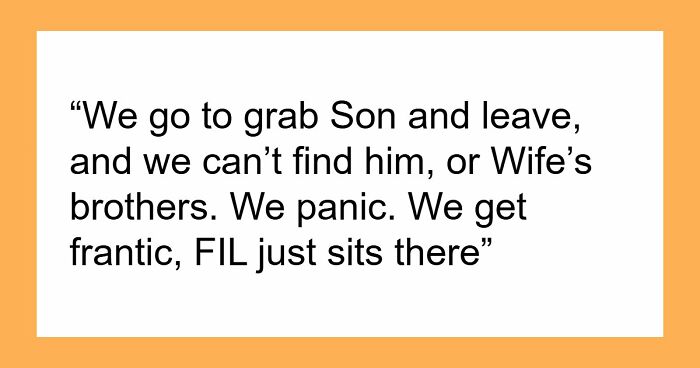
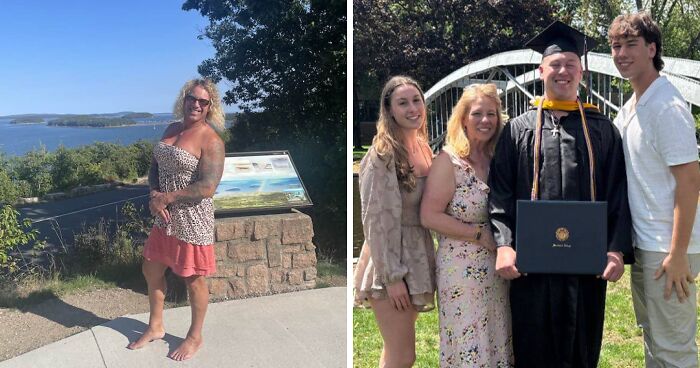
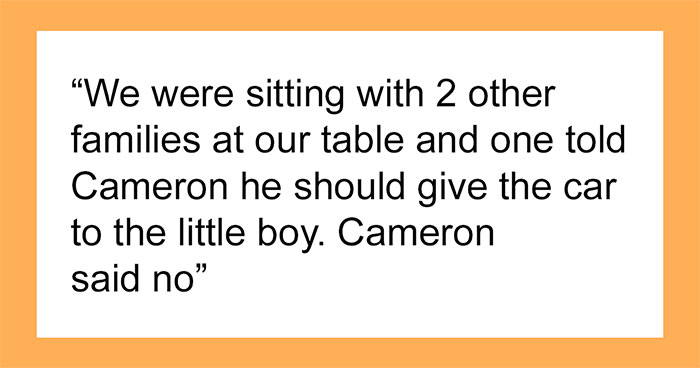
























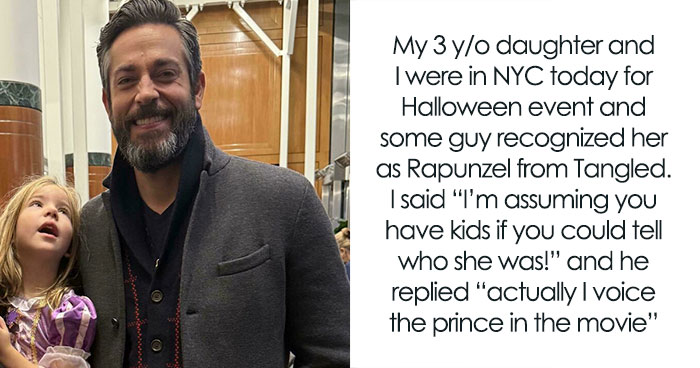
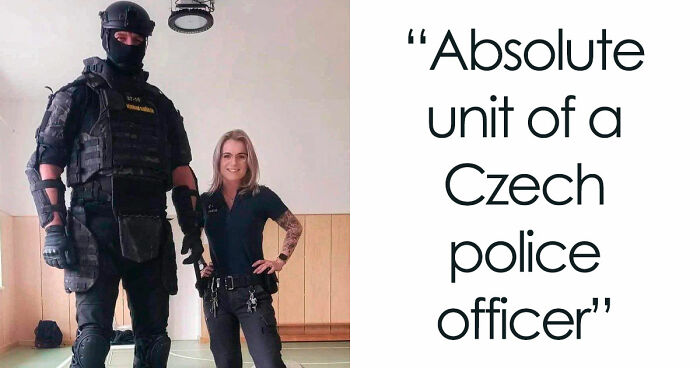

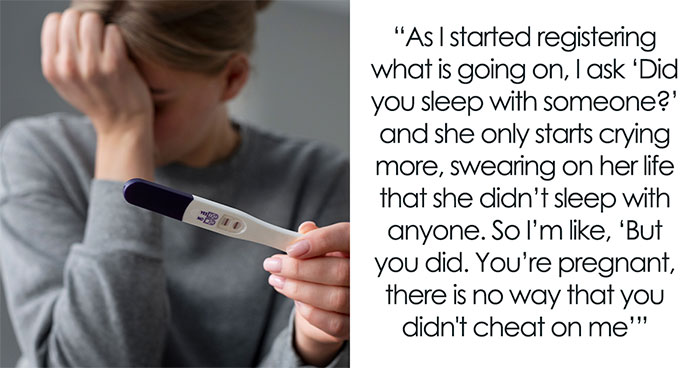



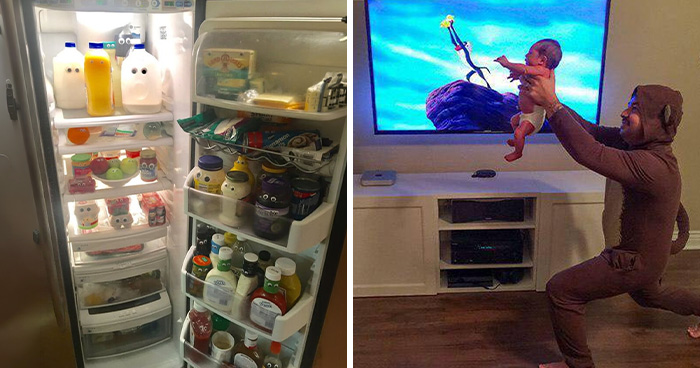
17
18